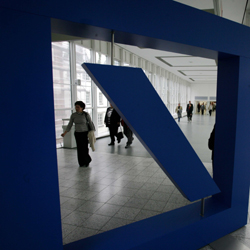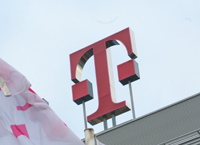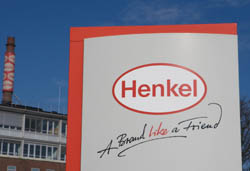ACTIONS CORNER
 Deutsche Bank was acquitted in the Parmalat insolvency trial. Handelsblatt reported this on 18 April on its website. According to a Milan court the four banks indicted (also including Citigroup, Bank of America and Morgan Stanley) were responsible for neither the financial collapse of the Italian food group in 2003, nor wrong messages to the market. According to Handelsblatt, the bank managers accused by the prosecution and threatened with prison sentences are thus not guilty. The judge’s reasoning has not yet been published.
Deutsche Bank was acquitted in the Parmalat insolvency trial. Handelsblatt reported this on 18 April on its website. According to a Milan court the four banks indicted (also including Citigroup, Bank of America and Morgan Stanley) were responsible for neither the financial collapse of the Italian food group in 2003, nor wrong messages to the market. According to Handelsblatt, the bank managers accused by the prosecution and threatened with prison sentences are thus not guilty. The judge’s reasoning has not yet been published.
In the years-long trial over compensation claims between Leo Kirch and Deutsche Bank, the court has cited Josef Ackermann as a witness. “Both former Executive Board members of Deutsche Bank as well as those belonging to this body then and now should be heard,” said the Munich Higher Regional Court. A judiciary spokesman confirmed that Ackermann was among these. The CEO on the witness stand is not the only celebrity: Friede Springer is also on the court’s list. The hearings are scheduled for May and June.
The Bundesgerichtshof (BGH) has criticized Deutsche Bank’s advice, in its verdict in the interest-rate swap trial. The Supreme Court had doubts about the integrity of these services in the sale of the interest-rate swaps. The bank had let customers buy a risk of loss, which they had taken on because of its investment recommendation. The institution should have made the customer clearly aware in a comprehensible and non-trivializing manner that his unlimited downside risk is not only theoretical but very real, and even, depending on the development of the Spread Ladder Swap, able to lead to financial ruin.
 As the Notice of Annual General Meeting of Deutsche Telekom on 12 May shows, Kai-Uwe Ricke and Klaus Zumwinkel have, in the agreement reached with the group just three months before, agreed to pay 600,000 euros each. Both have to raise only 250,000 euros each themselves; manager-liability insurance will pay the rest. Originally, Telekom wanted to recover compensation of around one million euros each from the former CEO and former supervisory board chairman, because they had breached their duty of care and harmed the company by the spying affair.
As the Notice of Annual General Meeting of Deutsche Telekom on 12 May shows, Kai-Uwe Ricke and Klaus Zumwinkel have, in the agreement reached with the group just three months before, agreed to pay 600,000 euros each. Both have to raise only 250,000 euros each themselves; manager-liability insurance will pay the rest. Originally, Telekom wanted to recover compensation of around one million euros each from the former CEO and former supervisory board chairman, because they had breached their duty of care and harmed the company by the spying affair.
Telegate has had a dispute going on since 2004 over excessive fees for the transfer of address data from Deutsche Telekom's subscriber list decided in its favour. Düsseldorf Higher Regional Court on 13 April announced judgments in a total of two complaints by two subsidiaries of the telephone information service, datagate and telegate Media, against the Bonn ex-monopolists. Telekom will initially pay around €45 million. An appeal against the sentences, which are not yet in force, was not allowed. A further verdict in a €52 million suit is to be announced in mid May.
Fraport has applied to the arbitration board of the World Bank to initiate new arbitration cases against the Philippine government in the multimillion-dollar law suit for compensation for the failed project for a new airport terminal at Ninoy Aquino International Airport in the capital Manila, said the Frankfurt airport operator on 1 April. This involves a payment of about 425 million dollars (around 300 million euros) plus interest. When the terminal was nearly completed, the building was expropriated in 2004 by the Philippine State.
 The European Commission has fined a cartel of three leading detergent manufacturers €315.2 million for illegal price-fixing. In addition to Procter & Gamble and Unilever, Henkel also belonged to the illegal alliance, operating 2002-2005, the competition watchdogs said. The three companies made a settlement with the Commission. The German company has no penalty to pay, because the Persil producer had co-operated. Ariel maker Procter & Gamble must therefore pay €211.2 million, and Coral manufacturer Unilever the remaining €104 million.
The European Commission has fined a cartel of three leading detergent manufacturers €315.2 million for illegal price-fixing. In addition to Procter & Gamble and Unilever, Henkel also belonged to the illegal alliance, operating 2002-2005, the competition watchdogs said. The three companies made a settlement with the Commission. The German company has no penalty to pay, because the Persil producer had co-operated. Ariel maker Procter & Gamble must therefore pay €211.2 million, and Coral manufacturer Unilever the remaining €104 million.
Conergy is demanding damages in the hundreds of millions of dollars from Roth & Rau, as four solar-cell lines for the production plant in Frankfurt an der Oder had been delivered late and not with the agreed specifications for the contract. The solar-system builder claims that the action is not justified at this level. At issue is a volume of €58 million, said Dietmar Roth. The sum demanded was therefore not understandable. Also, a maximum contractual penalty of €5.7 million euros had been agreed, for which, together with the expected legal costs in the amount of €0.8 million, provision had been made.
 In the criminal case against Thomas Ganswindt, the accused manager has admitted failings. The former Siemens board member told the Munich District Court that the corruption measures taken by him in the former telecoms division had not been sufficient. The prosecution accuses the 50-year-old of having had knowledge of slush funds and questionable payments. While former Siemens CEO von Pierer to date denies knowledge of “black cash” (slush funds), the defendant at least admits having come upon the issue and having tried to get employees involved, such as the already condemned Reinhard Siekaczek, to leave the Group. The former CCO Niedl Reiner testified Ganswindt had largely kept out of compliance issues and was not involved in payment orders either. A total of €1.3 billion euros is said to have gone on bribes. Reinhard Siekaczek, in charge of the slush funds for the telecom sector of Siemens, testified on 26 April that he had in January or February 2004 informed Ganswindt of the corruption and asked him to take care of it. The trial, for which another 20 days of hearings are scheduled, will drag on until at least September. Siemens is demanding five million euros from Ganswindt.
In the criminal case against Thomas Ganswindt, the accused manager has admitted failings. The former Siemens board member told the Munich District Court that the corruption measures taken by him in the former telecoms division had not been sufficient. The prosecution accuses the 50-year-old of having had knowledge of slush funds and questionable payments. While former Siemens CEO von Pierer to date denies knowledge of “black cash” (slush funds), the defendant at least admits having come upon the issue and having tried to get employees involved, such as the already condemned Reinhard Siekaczek, to leave the Group. The former CCO Niedl Reiner testified Ganswindt had largely kept out of compliance issues and was not involved in payment orders either. A total of €1.3 billion euros is said to have gone on bribes. Reinhard Siekaczek, in charge of the slush funds for the telecom sector of Siemens, testified on 26 April that he had in January or February 2004 informed Ganswindt of the corruption and asked him to take care of it. The trial, for which another 20 days of hearings are scheduled, will drag on until at least September. Siemens is demanding five million euros from Ganswindt.















